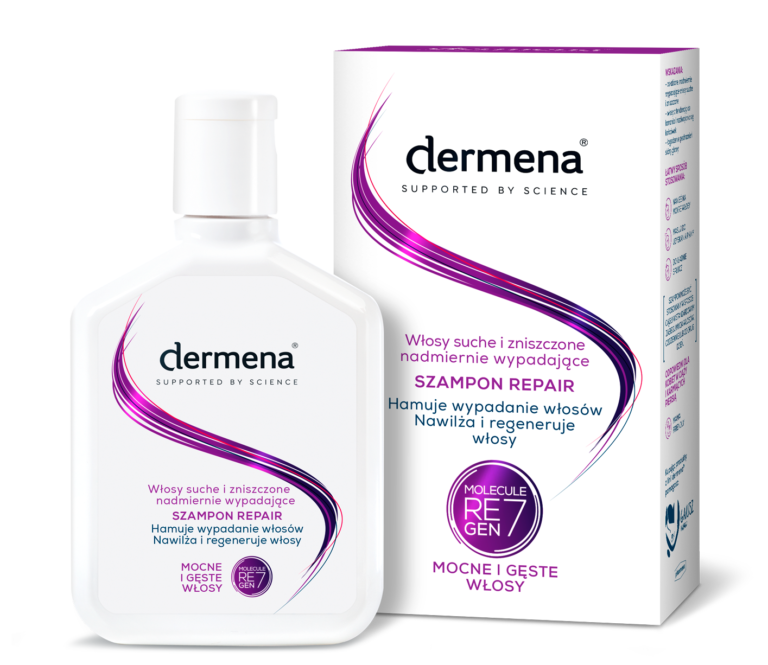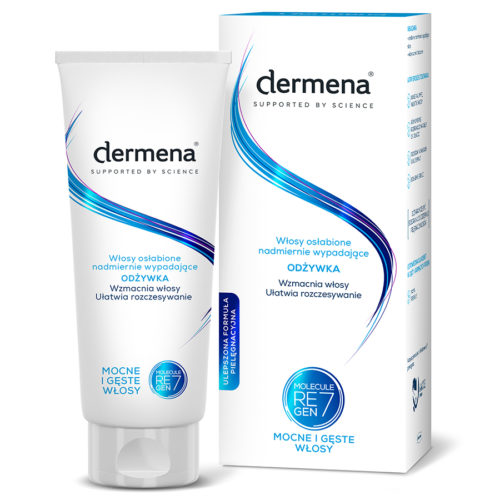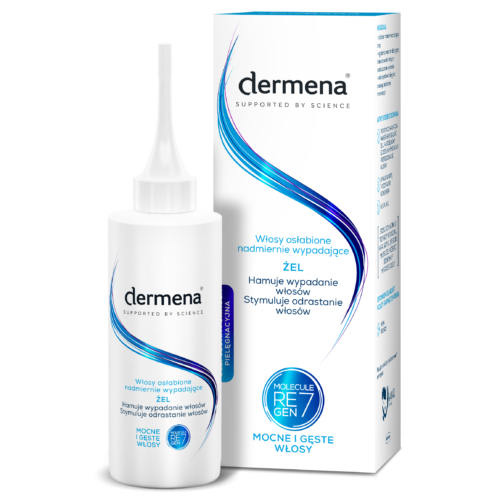Dry and damaged hair

Healthy hair contains approximately 10 % of water, which is located mainly in hair squama and shaft. Hair is protected against moisture lost by hair shaft formed by a substance secreted by sebaceous glands – sebum. Dry and damaged hair are the consequence of inadequate secretion and distribution of secretion from the sebaceous glands and/or interaction of factors damaging hair. In a dry hair fatty sheath, which protects the core of the hair is damaged and hair squama becomes open. Water can easily escape from the hair and it loses its shine, are prone to breakage and split ends. Such hair is weak, lacking flexibility and hard to comb. Its softness and easiness to style is reduced as the hair surface is rough and they catch on each other. Dry and damaged hair tend to “frizz” and fall out excessively. Frequently the problems of dry and damaged hair are caused by improper care and styling habits that disturb the natural balance of the hair. Hair may become damaged by mechanical injury during too intensive and/or frequent brushing or winding the hair too tightly on the rollers or curling iron. Excessive use of hair dryers, straighteners, intensive bleaching, coloring, perming, using shampoos containing wrongly selected potent detergents are also responsible for the poor condition of hair. Further reasons for weakening of the hair include environmental factors, such as sunlight, temperature differences, air conditioning, air pollution, wind, salty water and chlorinated water in swimming pools. There are many reasons for dryness and degradation of hair. They should be avoided for a healthy and beautiful hair.
Taking care of dry and damaged hair
Both dry and damaged hair can negatively affect the person's well-being. But this is not an unsolvable problem. Many of the damaging factors may be avoided.
If you have dry and damaged hair you should:
- not wash the hair in too warm water since it deprives hair of natural
substances, - rinse hair with cool water; that facilitates closing hair squamas
- not rub your hair too vigorously with a towel after washing, but rather wrap it in a turban
- not brush your hair rapidly, but comb it gently, holding them at the roots,
- use a comb with widely spaced teeth or natural bristle brush,
- avoid hot air while using hairdryer as well as curlers and straighteners,
- protect your hair from strong wind, frost and sun,
- regularly cut hair tips (every 6 – 8 weeks), which improves the appearance of your hair.
Proper hair care is articularly helpful in the prevention of these problems. It consists in using carefully selected, high quality topical products in the form of shampoos and conditioners.
In terms of selection of the products you should remember to:
- use only products intended for dry and damaged hair (e.g. dermena® repair), that provide an adequate moisture level, regenerate damaged structure of the hair, smoothen the surface and facilitate combing,
- use conditioners regularly(e.g. dermena®), preferably after every washing,
- avoid styling cosmetics that contain alcohol, since it dries the hair out
- avoid frequent bleaching, dyeing and perming of hair.
A definite influence on the condition of skin and hair has a balanced diet with qualitatively and quantitatively appropriate contents of protein, fats, carbohydrates, micro- and macroelements and vitamins. They are not only the source of substances that build the structure of a hair, but are also essential for the proper functioning of enzymes responsible for the proper functioning of skin cells. These compounds may be supplied to the body as dietary supplements (e.g. dermena® complex ). A very important aspect is to provide the body with an adequate amount of water – at least 1.5 liters per day. Remember that “healing” of dry and damaged hair needs patience. All of the undertaken measures will not cause an immediate regeneration. Hair restoration is a long-term process that can last even for a several months.
Recommended products
dermena® REPAIR SHAMPOO
- reduces hair loss
- stimulates hair growth
dermena® CONDITIONER
- strengthens hair
- facilitates combing
dermena® GEL
- reduces hair loss
- stimulates hair growth







